95 start with T start with T

Prime minister of Sweden and leader of the Social Democratic party from 1946-1969, Tage Erlander enjoyed a career that was remarkable both for its major accomplishments and longevity. Under his leadership, Sweden became an exemplary welfare state following World War II. Universal pensions, child support, health insurance, extended paid vacations, subsidized housing, and many other benefits made Sweden's standard of living the envy of the world.
This definitive political biography is both the study of an individual style of leadership and the role of the prime minister in a parliamentary state. It shows Erlander as a complex and engaging intellectual fiercely loyal to his party, agitative yet dedicated to cooperation between parties.
Olof Ruin analyzes Erlander's various roles as Riksdag caucus leader, cabinet organizer, party leader, promoter of domestic consensus, and foreign policy maker. Ruin is the first scholar to be given unrestricted access to Erlander's diaries.

Amid the din of Russia’s patriotic sentiments and Instagram instants, is there any room left for the voice of a poet? Despite the many entertainments and distractions of modern life, Anzhelina Polonskaya’s spare but cutting poems in Take Me to Stavanger declare a wholehearted “Yes.” This bilingual Russian-English volume makes a refuge for the poet and her readers, plumbing the depths of contemporary melancholy and ennui. Beautifully crafted idiosyncratic dissections of a strong individual who refuses to go along with the currents of popular culture or political jingoism invite readers to slow down and pay attention.
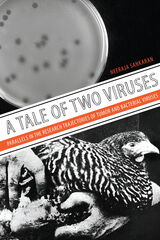
In 1965, French microbiologist André Lwoff was awarded the Nobel Prize in Physiology or Medicine for his work on lysogeny—one of the two types of viral life cycles—which resolved a contentious debate among scientists about the nature of viruses. A Tale of Two Viruses is the first study of medical virology to compare the history of two groups of medically important viruses—bacteriophages, which infect bacteria, and sarcoma agents, which cause cancer—and the importance of Lwoff’s discovery to our modern understanding of what a virus is. Although these two groups of viruses may at first glance appear to have little in common, they share uniquely parallel histories. The lysogenic cycle, unlike the lytic, enables viruses to replicate in the host cell without destroying it and to remain dormant in a cell’s genetic material indefinitely, or until induced by UV radiation. But until Lwoff’s discovery of the mechanism of lysogeny, microbiologist Félix d’Herelle and pathologist Peyton Rous, who themselves first discovered and argued for the viral identity of bacteriophages and certain types of cancer, respectively, faced opposition from contemporary researchers who would not accept their findings. By following the research trajectories of the two virus groups, Sankaran takes a novel approach to the history of the development of the field of medical virology, considering both the flux in scientific concepts over time and the broader scientific landscapes or styles that shaped those ideas and practices.

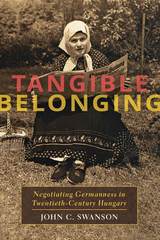
Tangible Belonging presents a compelling historical and ethnographic study of the German speakers in Hungary, from the late nineteenth to the late twentieth century. Through this tumultuous period in European history, the Hungarian-German leadership tried to organize German-speaking villagers, Hungary tried to integrate (and later expel) them, and Germany courted them. The German speakers themselves, however, kept negotiating and renegotiating their own idiosyncratic sense of what it meant to be German. John C. Swanson’s work looks deeply into the enduring sense of tangible belonging that characterized Germanness from the perspective of rural dwellers, as well as the broader phenomenon of “minority making” in twentieth-century Europe.
The chapters reveal the experiences of Hungarian Germans through the First World War and the subsequent dissolution of Austria-Hungary; the treatment of the German minority in the newly independent Hungarian Kingdom; the rise of the racial Volksdeutsche movement and Nazi influence before and during the Second World War; the immediate aftermath of the war and the expulsions; the suppression of German identity in Hungary during the Cold War; and the fall of Communism and reinstatement of minority rights in 1993.
Throughout, Swanson offers colorful oral histories from residents of the rural Swabian villages to supplement his extensive archival research. As he shows, the definition of being a German in Hungary varies over time and according to individual interpretation, and does not delineate a single national identity. What it meant to be German was continually in flux. In Swanson’s broader perspective, defining German identity is ultimately a complex act of cognition reinforced by the tangible environment of objects, activities, and beings. As such, it endures in individual and collective mentalities despite the vicissitudes of time, history, language, and politics.
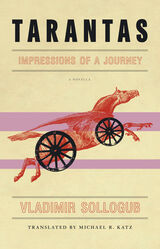
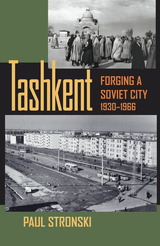
Paul Stronski tells the fascinating story of Tashkent, an ethnically diverse, primarily Muslim city that became the prototype for the Soviet-era reimagining of urban centers in Central Asia. Based on extensive research in Russian and Uzbek archives, Stronski shows us how Soviet officials, planners, and architects strived to integrate local ethnic traditions and socialist ideology into a newly constructed urban space and propaganda showcase.
The Soviets planned to transform Tashkent from a “feudal city” of the tsarist era into a “flourishing garden,” replete with fountains, a lakeside resort, modern roadways, schools, hospitals, apartment buildings, and of course, factories. The city was intended to be a shining example to the world of the successful assimilation of a distinctly non-Russian city and its citizens through the catalyst of socialism. As Stronski reveals, the physical building of this Soviet city was not an end in itself, but rather a means to change the people and their society.
Stronski analyzes how the local population of Tashkent reacted to, resisted, and eventually acquiesced to the city’s socialist transformation. He records their experiences of the Great Terror, World War II, Stalin’s death, and the developments of the Krushchev and Brezhnev eras up until the earthquake of 1966, which leveled large parts of the city. Stronski finds that the Soviets established a legitimacy that transformed Tashkent and its people into one of the more stalwart supporters of the regime through years of political and cultural changes and finally during the upheavals of glasnost.
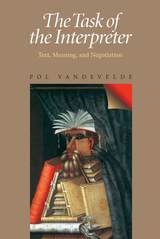
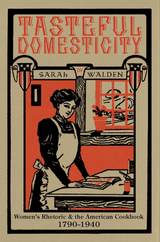

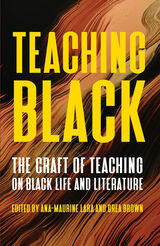
Teaching Black: The Craft of Teaching on Black Life and Literature presents the experiences and voices of Black creative writers who are also teachers. The authors in this collection engage poetry, fiction, experimental literature, playwriting, and literary criticism. They provide historical and theoretical interventions and practical advice for teachers and students of literature and craft. Contributors work in high schools, colleges, and community settings and draw from these rich contexts in their essays. This book is an invaluable tool for teachers, practitioners, change agents, and presses. Teaching Black is for any and all who are interested in incorporating Black literature and conversations on Black literary craft into their own work.
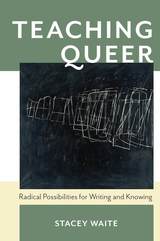
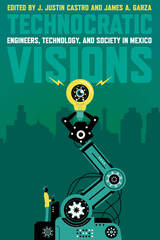
Technocratic Visions examines the context and societal consequences of technologies, technocratic governance, and development in Mexico, home of the first professional engineering school in the Americas. Contributors focus on the influential role of engineers, especially civil engineers, but also mining engineers, military engineers, architects, and other infrastructural and mechanical technicians. During the mid-nineteenth century, a period of immense upheaval and change domestically and globally, troubled governments attempted to expand and modernize Mexico’s engineering programs while resisting foreign invasion and adapting new Western technologies to existing precolonial and colonial foundations. The Mexican Revolution in 1910 greatly expanded technocratic practices as state agents attempted to control popular unrest and unify disparate communities via science, education, and infrastructure. Within this backdrop of political unrest, Technocratic Visions describes engineering sites as places both praised and protested, where personal, local, national, and global interests combined into new forms of societal creation; and as places that became centers of contests over representation, health, identity, and power. With an eye on contextualizing current problems stemming from Mexico’s historical development, this volume reveals how these transformations were uniquely Mexican and thoroughly global.


The Tenant of Fire is about Queens, NY—its history, public and personal, real and imagined. Many of the people who populate this book—Irish Catholics, Italian-Americans—were once considered ethnic but now fall wholly under the banner of white. And from their anxieties a man like Donald Trump emerges. Born and raised in Queens, Trump is both the product and purveyor of a localized nativist politic.
The young white speaker of these poems works to record his parents’ and neighbors’, both white and of color, and his own attempts at navigating a shifting landscape. In poems on the homecoming of Vietnam vets, or the aftermath of Hurricane Sandy, or the firebombing of Malcolm X’s house, The Tenant of Fire explores how and why the plurality of a place like Queens, where now nearly two hundred languages are spoken, is viewed as a threat to national security.
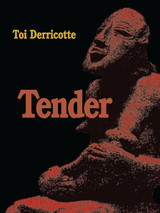

Finalist, 2022 INDIES Book of the Year Award, Poetry
Territorial explores the bargains that women make to stay safe from violence. Set in a landscape of looming ecological ruin, the poems bear witness to the effects of drought on the California chaparral region and delve into difficult personal terrain to reveal patterns of abuse we inflict on the earth and each other. How can we emerge from a devastated landscape into a sense of healing and repair? Using the characteristics of violence—repetition and escalation—the collection connects subjects that range from the dawn of recorded sound to the mapping of myths onto constellations, the ecosystem of a leach pond, and the photographs of Alfred Stieglitz. In tracing the ways narratives of predation imprint onto the body, memory, environment, and future generations, Territorial finds resilience in the powers of language to reshape experience.


Thaddeus “Thad” Mosley is a self-taught African American sculptor. Earning a living throughout his adult life as a postal worker in Pittsburgh, Pennsylvania, so that he could support his family by day and work as a sculptor by night, he has evolved an individual and powerful African American voice. He worked alone, patiently developing a sculptural language absolutely his own, yet traceable to his primary sources of inspiration, the vitality of African art and American jazz on the one hand, and on the other, two twentieth-century artists, the Romanian sculptor Constantin Brancusi and the Asian American sculptor Isamu Noguchi.
From the beginning Thad Mosley has been a carver. His materials have always been those “at hand,” logs from the trees of his native Western Pennsylvania, stones from the sites of demolished buildings in Pittsburgh, and metals from local scrapyards. Finding within each log or block of stone an essential vitality, his carvings invariably bear a syncopation of chisel marks evoking the rhythms and surging freedoms of jazz. Mosley’s perseverence and his pride in who he is offer an inspiring example of the unquenchable spirit of a true artists.
This short book introduces the life and work of this remarkable man. Davis Lewis, architect, writer, and painter, has been a friend of the artist for twenty-five years. His narrative is distilled from hours of taped interviews with Thad Mosley, as well as from a deep understanding of his art and influences. Lonnie Graham is a nationally known African-American photographer.
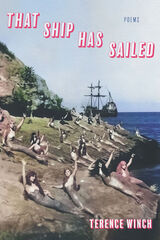
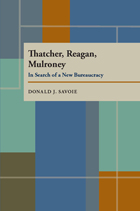
Savoie considers the war of reform waged by the leaders of these major industrial countries. Reagan declared that he had come to Washington to “drain the swamp” of bureaucracy, and set up the Grace Commission to investigate the operation of the U.S. government. Thatcher and Mulroney were equally committed to reform and initiated wide-ranging changes. By the end of the 1990s, the changes were dramatic. Many governments operations had been privatized in all three countries, and new management techniques had been introduced. In Great Britain, one observer judged that the changes were historically as important as the collapse of Keynesian economics.
Is government now better in these countries, and was political leadership right in focusing on management of the bureaucracy as the villain? Savoie suggests that the reforms overlooked problems now urgently requiring attention and, at the same time, attempted to address non-existent problems. He combines theory and research based on sixty-two interviews, nearly all with members of the executive branch of the governments of Britain, Canada and the United States.
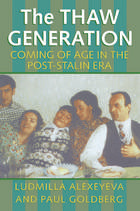
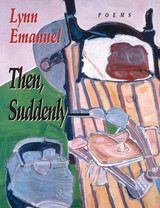
A reader and a writer don their respective roles and embark on the journey of a book. This is their story--ultimately a love story--darkly funny, mournful, testy. It is about a reader who at times presides over the page like a god, and at others follows the leash of the author's voice through the dark streets of the book like a dog, and it is about a writer of determined slipperiness. As we read, we think that each of us is The Reader, the one who knows the Real Story. But the more we think we understand, the more the story moves away from us—all is not what it seems.
This eagerly awaited third volume by the poet whose work The New York Times described as "at once charmed and frightening" is a book of high-spirited subversiveness, a work of argument, seduction, and a relentless devotion to language. Then, Suddenly— bristles with the sound of the author's voice--insistent, vital, hilarious, and iconoclastic--tearing away at the confinement of the page and at the distance between the page and the reader. Emanuel's images are dazzling. She creates a performance that is fearsome and funny in its portrayal of the argument between the work of the text and the world of the body. The Gettsyburg Review has called her a writer of "exquisite craftsmanship" who can "strike from language . . . images chiseled clean as bas-relief." Then, Suddenly— is a book of spectacle and verve, part elegy, part vaudeville.
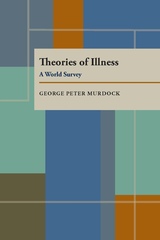
An important contribution to medical anthropology, this work defines the principal causes if illness that are reported throughout the world, distinguishing those involving natural causation from the more widely prevalent hypotheses advancing supernatural explanations.
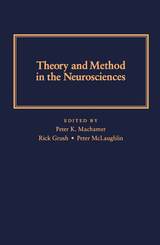
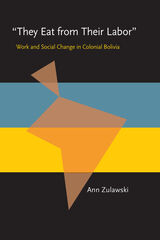
A study of the growth of the indigenous labor force in upper Peru (now Bolivia) during colonial times. Ann Zulawski provides case studies in mining and agriculture, and places her data within a larger historical context than analyzes Iberian and Andean concepts of gender, property, and labor. She concludes that although mercantilism made a critical impact in the New World, the colonial economic system in the Andes was not yet capitalist. Attitudes of both indigenous peoples and Spanish colonizers hindered the process of turning work into a commodity. In addition, the mobilization of labor power both reinforced and undermined each society's ideas about the economic and social roles of men and women.
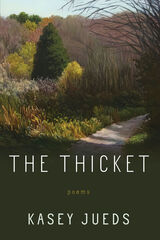

"The aim of poetry (and the higher kind of thriller) is to be unexpected and memorable. So a poem about death might treat it in a way that combines the bizarre and the banal: the Other Side as some kind of institution—a creepy hospital, an officious hotel or retirement home. Martha Rhodes takes such an approach in 'Ambassadors to the Dead,' from her abrupt, unsettling, artfully distorted, indelible new book Mother Quiet. Blending the matter-of-fact with the surreal, as a way of comprehending the stunning, final reality, Rhodes is an inheritor of Emily Dickinson's many poems on the same subject."
—Robert Pinsky, Washington Post
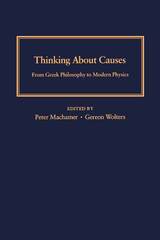
Emerging as a hot topic in the mid-twentieth century, causality is one of the most frequently discussed issues in contemporary philosophy. Causality has been a central concept in philosophy as well as in the sciences, especially the natural sciences, dating back to its beginning in Greek thought. David Hume famously claimed that causality is the cement of the universe. In general terms, it links eventualities, predicts the consequences of action, and is the cognitive basis for the acquisition and the use of categories and concepts in the child. Indeed, how could one answer why-questions, around which early rational thought begins to revolve, without hitting on the relationships between reason and consequence, cause and effect, or without drawing these distinctions? But a comprehensive definition of causality has been notoriously hard to provide, and virtually every aspect of causation has been subject to much debate and analysis.
Thinking about Causes brings together top philosophers from the United States and Europe to focus on causality as a major force in philosophical and scientific thought. Topics addressed include: ancient Stoicism and moral philosophy; the case of sacramental causality; traditional causal concepts in Descartes; Kant on transcendental laws; the influence of J. S. Mill's politics on his concept of causation; plurality in causality; causality in modern physics; causality in economics; and the concept of free will.
Taken together, the essays in this collection provide the best current thinking about causality, especially as it relates to the philosophy of science.
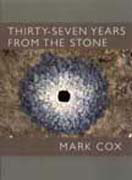

Selected by Jill McCorkle
This Angel on My Chest is a collection of unconventionally linked stories, each about a different young woman whose husband dies suddenly and unexpectedly. Ranging from traditional stories to lists, a quiz, a YouTube link, and even a lecture about creative writing, the stories grasp to put into words the ways in which we all cope with unspeakable loss.
Based on the author’s own experience of losing her husband at age thirty-seven, this book explores the resulting grief, fury, and bewilderment, mirroring the obsessive nature of grieving. The stories examine the universal issues we face at a time of loss, as well as the specific concerns of a young widow: support groups, in-laws, insurance money, dating, and remarriage. This Angel on My Chest ultimately asks, how is it possible to move forward with life while “till death do you part” rings in your ears—and, how is it possible not to?

“Few others in contemporary poetry are so brilliantly able to combine wit and weight, to charge the language so it virtually glows in the dark. Hicok's poems just plain rock. They rock because they are gorgeous. They rock because they are sad and turn on the radio. They dance our 'clumsy living' with our shadows and our isolations to a music that always, always remembers the original delight in which 'the feel of things, if [we] cherish, helps [us] live / more like a minute than a clock.'”--Beckian Fritz Goldberg

Thomas Crawford (1813–1857) was the first American sculptor to study in Italy for an extended period of time. There, along with other artists—Greenough, Story, and Powers—he was part of a group that made prolific contributions to American neoclassical art. He is best known as the sculptor of much of the statuary and bas-reliefs of our nation’s Capitol: the pediment figures over the Senate and of the House of Representatives, and the bronze Freedom atop the Capitol’s dome.
In writing this biography, Robert Gale was given exclusive access to all of Crawford’s personal papers by the sculptor’s granddaughter. An appendix lists extant works of Crawford and where they are found, and several plates illustrate his sculpture.
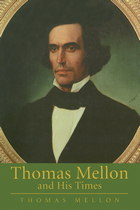
In 1885, at the age of seventy-two and “in the evening of life,” Thomas Mellon published his autobiography in a limited edition exclusively for his family. He was a distinguished and highly successful Pittsburgh entrepreneur, judge, and banker, and his descendants would play major roles in American business, art, and philanthropy. Two of his sons, Andrew William and Richard Beatty, were to join Henry Ford and John D. Rockefeller as the four wealthiest men in the United States.
Thomas Mellon was an anomaly among the great American capitalists of his time. Highly literate and intelligent, astute and deadly honest about his own life and financial success, and an excellent narrative writer with a chilly but genuine sense of humor, he wrote a perspective and self-revealing book that remains to this day a major autobiography and an important source for American social and business history.
That it has found very few readers in the 114 year since its publication is due to the author himself. Warning his descendants in the preface that the book should never “be for sale in the bookstore, nor any new edition published,” because it contains “nothing which concerns the public to know, and much which if writing for it I would have omitted,” Thomas in effect buried a masterpiece.
Nor in later years has it ever been generally available. An abridged version was prepared solely for the Mellon family in 1968, and the book also appeared years ago in an obscure fascimile. Until the University of Pittsburgh Press edition, Thomas Mellon and His Times has been virtually unobtainable.
Born in Ulster with a Scotch-Irish heritage, Thomas Mellon immigrated to the United States in 1818 at the age of five. He was raised by his parents on a small, hilly farm at Poverty Point, about twenty miles east of Pittsburgh. When he was nine, he walked to Pittsburgh and, awe-struck, viewed the mansion and steam mill of the Negley family, “impressed . . . with an idea of wealth and magnificence I had before no conception of.”
Yet the true turning point of his life was a decision he made at the age of seventeen. For years his father, Andrew, had insisted that Thomas become a farmer. One summer day in 1831, leaving his son cutting timber, Andrew rode to the county seat to close on the purchase of an adjoining farm which he intended for Thomas. “Nearly crazed” by the impending collapse of all hope of “acquiring knowledge and wealth,” Thomas threw down his axe and ran ten miles to stop the purchase. From this spontaneous decision flowed his later success as a judge, banker, and capitolist who caught the exhilarating tide of the American economy in the second half of the nineteenth century.
For this new edition of the book, Paul Mellon, Thomas Mellon’s grandson, has written a preface, and David McCullough, winner of the Pulitzer Prize for his biography of Harry S. Truman, has contributed a foreword. The introduction, notes, and afterword by Mary L, Briscoe, Professor of English at the University of Pittsburgh and editor of American Autobiography, 1945-1980, provide the historical and social context for the autobiography. The book is illustrated with three maps and approximately twenty-five photographs, many of them rarely seen, from a variety of sources that includes Paul Mellon and other members of the Mellon family.

Winner, 2023 SAH Alice Davis Hitchcock Book Award
Three Cities after Hitler compares how three prewar German cities shared decades of postwar development under three competing post-Nazi regimes: Frankfurt in capitalist West Germany, Leipzig in communist East Germany, and Wrocław (formerly Breslau) in communist Poland. Each city was rebuilt according to two intertwined modern trends. First, certain local edifices were chosen to be resurrected as “sacred sites” to redeem the national story after Nazism. Second, these tokens of a reimagined past were staged against the hegemony of modernist architecture and planning, which wiped out much of whatever was left of the urban landscape that had survived the war. All three cities thus emerged with simplified architectural narratives, whose historically layered complexities only survived in fragments where this twofold “redemptive reconstruction” after Nazism had proven less vigorous, sometimes because local citizens took action to save and appropriate them. Transcending both the Iron Curtain and freshly homogenized nation-states, three cities under three rival regimes shared a surprisingly common history before, during, and after Hitler—in terms of both top-down planning policies and residents’ spontaneous efforts to make home out of their city as its shape shifted around them.
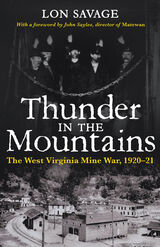
The West Virginia mine war of 1920–21, a major civil insurrection of unusual brutality on both sides, even by the standards of the coal fields, involved thousands of union and nonunion miners, state and private police, militia, and federal troops. Before it was over, three West Virginia counties were in open rebellion, much of the state was under military rule, and bombers of the US Army Air Corps had been dispatched against striking miners.
The civil war began in the small railroad town of Matewan when Mayor C. C. Testerman and Police Chief Sid Hatfield sided with striking miners against agents of the Baldwin-Felts Detective Agency, who attempted to evict the miners from company-owned housing. Thunder in the Mountains was the first book-length account of this crisis in American industrial relations and governance, much neglected in historical accounts.

In the early days of utility development, municipalities sought to shape the new systems in a variety of ways even as private firms struggled to retain control and fend off competition. In scope and consequence, some of the battles dwarfed the contemporary one between local jurisdictions and cable companies over broadband access to the Internet.
In this comparative historical study, Jacobson draws upon economic theory to shed light on relationships between technology, market forces, and problems of governance that have arisen in connection with different utility networks over the past two hundred years. He focuses on water, electric, and cable television utility networks and on experiences in four major American cities—Boston, Seattle, San Francisco, and Pittsburgh, arguing that information and transactions costs have played decisive roles in determining how different ownership and regulatory arrangements have functioned in different situations.
Using primary sources and bold conceptualizations, Jacobson begins his study by examining the creation of centralized water systems in the first half of the nineteenth century, moves to the building of electric utilities from the 1880s to the 1980s, and concludes with an analysis of cable television franchising from the 1960s to the 1980s. Ties That Bind addresses highly practical questions of how to make ownership, regulatory, and contracting arrangements work better and also explores broader concerns about private monopoly and the role of government in society.

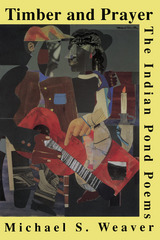
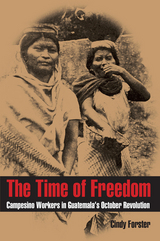
"The time of freedom" was the name that plantation workers—campesinos—gave to Guatemala’s national revolution of 1944–1954. Cindy Forster reveals the critical role played by the poor in organizing and sustaining this period of reform.
Through court records, labor and agrarian ministry archives, and oral histories, Forster demonstrates how labor conflict on the plantations prepared the ground for national reforms that are usually credited to urban politicians. She focuses on two plantation zones that generated exceptional momentum: the coffee belt in the highlands around San Marcos and the United Fruit Company’s banana groves near Tiquisate. Although these regions were unlike in size and complexity, language and race, popular culture and work patterns, both erupted with demands for workers’ rights and economic justice shortly after the fall of Castañeda in 1944.
A welcome balance to the standard "top-down" histories of the revolution, Forster’s sophisticated analysis demonstrates how campesinos changed the course of the urban revolution. By establishing the context of grassroots mobilization, she substantially alters the conventional view of the entire revolution, and particularly the reforms enacted under President Albenz.
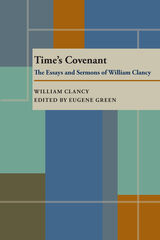
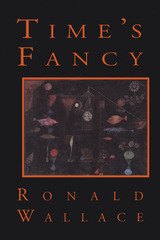
Winner of the 1995 Banta Book Prize for a Wisconsin Author
Ronald Wallace is best known for his wit and good humor, his synthesis of technical skill and strong emotion, his sensory immediacy, his accessibility, and charm. Now in Time's Fancy, his fifth collection, Wallace explores the tragic aspects of life more fully, fashioning a declarative poetry that is darker and deeper, more meditative and complex.

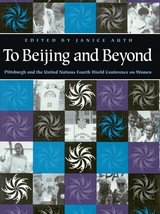
The words of these college presidents, students, teachers, homemakers, retirees, writers, clergy, and entrepreneurs who participated in the UN Fourth World Conference on Women document the remarkable initiative, energy, and vision of those who began and continue to coordinate the activities of Pittsburgh/Beijing ’95 and Beyond. Auth also offers background information on the three previous UN Women’s Conferences, outlines the work that has been accomplished since the 1995 conference, and the plans for implementing the Beijing Platform for Action at the local level. Her remarks and the stories she has collected offer an intimate portrayal of an historical event that was largely under-reported by popular media. Essential reading for anyone who wants to know what really happened and what they can do now.
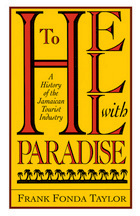
In the course of the nineteenth century, Jamaica transformed itself from a pestilence-ridden “white man’s graveyard” to a sun-drenched tourist paradise. Deftly combining economics with political and cultural history, Frank Fonda Taylor examines this puzzling about-face and explores the growth of the tourist industry into the 1990s. He argues that the transformations in image and reality were not accidental or due simply to nature’s bounty. They were the result of a conscious decision to develop this aspect of Jamaica’s economy.
Jamaican tourism emerged formally at an international exhibition held on the island in 1891. The international tourist industry, based on the need to take a break from stressful labor and recuperate in healthful and luxurious surroundings, was a newly awakened economic giant. A group of Jamaican entrepreneurs saw its potential and began to cultivate a tourism psychology which has led, more than one hundred years later, to an economy dependent upon the tourist industry.
The steamships that carried North American tourists to Jamaican resorts also carried U.S. prejudices against people of color. “To Hell withParadise” illustrates the problems of founding a tourist industry for a European or U.S. clientele in a society where the mass of the population is poor, black, and with a historical experience of slavery and colonialism. By the 1990s, tourism had become the lifeblood of the Jamaican economy, but at an enormous cost: enclaves of privilege and ostentation that exclude the bulk of the local population, drug trafficking and prostitution, soaring prices, and environmental degradation. No wonder some Jamaicans regard tourism as a new kind of sugar.
Taylor explores timely issues that have not been previously addressed. Along the way, he offers a series of valuable micro histories of the Jamaican planter class, the origins of agricultural dependency (on bananas), the growth of shipping and communications links, the process of race relations, and the linking of infrastructural development to tourism. The text is illustrated with period photographs of steamships and Jamaican tourist hotels.
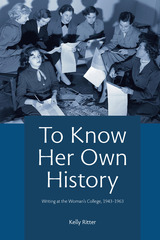
To Know Her Own History chronicles the evolution of writing programs at a landmark Southern women’s college during the postwar period. Kelly Ritter finds that despite its conservative Southern culture and vocational roots, the Woman’s College of the University of North Carolina was a unique setting where advanced writing programs and creativity flourished long before these trends emerged nationally.
Ritter profiles the history of the Woman’s College, first as a normal school, where women trained as teachers with an emphasis on composition and analytical writing, then as a liberal arts college. She compares the burgeoning writing program here to those of the Seven Sisters (Wellesley, Smith, Radcliffe, Barnard, Vassar, Bryn Mawr, and Mount Holyoke) and to elite all-male universities, to show the singular progressivism of the Woman’s College. Ritter presents lively student writing samples from the early postwar period to reveal a blurring of the boundaries between “creative” and “expository” styles.
By midcentury, a quantum shift toward creative writing changed administrators’ valuation of composition courses and staff at the Woman’s College. An intensive process of curricular revisions, modeled after Harvard’s “Redbook” plan, was proposed and rejected in 1951, as the college stood by its unique curricula and singular values. Ritter follows the plight of individual instructors of creative writing and composition, showing how their compensation and standing were made disproportionate by the shifting position of expository writing in relation to creative writing. Despite this unsettled period, the Woman’s College continued to gain in stature, and by 1964 it became a prize acquisition of the University of North Carolina system.
Ritter’s study demonstrates the value of local histories to uncover undocumented advancements in writing education, offering insights into the political, cultural, and social conditions that influenced learning and methodologies at “marginalized” schools such as the Woman’s College.
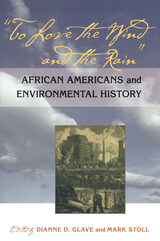
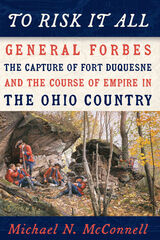
A close look at the Forbes Campaign and its personnel reveals much about both British relations with native peoples and the nature of Britain’s American empire during a time of stress. Unlike other campaigns, this one was composed largely of colonial—not professional British—troops. In addition, individual colonies negotiated their role in the campaign and frequently placed their own local interests ahead of those of the empire as a whole. The campaign thus suggests the limits of imperial power and how Britain’s hold over its American frontiers was, at best, tenuous and helped lead to an eventual break-down of empire in the 1760s and 1770s.
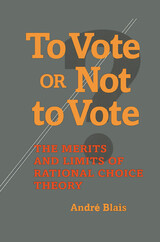
What makes people decide to vote? In addressing this simple question, André Blais examines the factors that increase or decrease turnout at the aggregate, cross-national level and considers what affects people’s decision to vote or to abstain. In doing so, Blais assesses the merits and limitations of the rational choice model in explaining voter behavior. The past few decades have witnessed a rise in the popularity of the rational choice model in accounting for voter turnout, and more recently a groundswell of outspoken opposition to rational choice theory.
Blais tackles this controversial subject in an engaging and personal way, bringing together the opposing theories and literatures, and offering convincing tests of these different viewpoints. Most important, he handles the discussion in a clear and balanced manner. Using new data sets from many countries, Blais concludes that while rational choice is an important tool—even when it doesn’t work—its empirical contribution to understanding why people vote is quite limited.
Whether one supports rational choice theory or opposes it, Blais’s evenhanded and timely analysis will certainly be of interest, and is well-suited for advanced undergraduate and graduate-level classes.
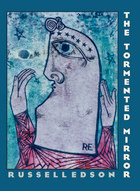
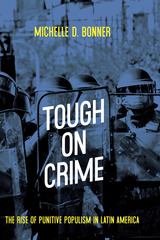
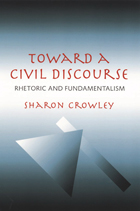
Toward a Civil Discourse examines how, in the current political climate, Americans find it difficult to discuss civic issues frankly and openly with one another. Because America is dominated by two powerful discourses--liberalism and Christian fundamentalism, each of which paints a very different picture of America and its citizens' responsibilities toward their country-there is little common ground, and hence Americans avoid disagreement for fear of giving offence.
Sharon Crowley considers the ancient art of rhetoric as a solution to the problems of repetition and condemnation that pervade American public discourse. Crowley recalls the historic rhetorical concept of stasis--where advocates in a debate agree upon the point on which they disagree, thereby recognizing their opponent as a person with a viable position or belief. Most contemporary arguments do not reach stasis, and without it, Crowley states, a nonviolent resolution cannot occur.
Toward a Civil Discourse investigates the cultural factors that lead to the formation of beliefs, and how beliefs can develop into densely articulated systems and political activism. Crowley asserts that rhetorical invention (which includes appeals to values and the passions) is superior in some cases to liberal argument (which often limits its appeals to empirical fact and reasoning) in mediating disagreements where participants are primarily motivated by a moral or passionate commitment to beliefs.
Sharon Crowley examines numerous current issues and opposing views, and discusses the consequences to society when, more often than not, argumentative exchange does not occur. She underscores the urgency of developing a civil discourse, and through a review of historic rhetoric and its modern application, provides a foundation for such a discourse-whose ultimate goal, in the tradition of the ancients, is democratic discussion of civic issues.
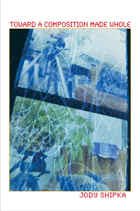
To many academics, composition still represents typewritten texts on 8.5” x 11” pages that follow rote argumentative guidelines. In Toward a Composition Made Whole, Jody Shipka views composition as an act of communication that can be expressed through any number of media and as a path to meaning-making. Her study offers an in-depth examination of multimodality via the processes, values, structures, and semiotic practices people employ everyday to compose and communicate their thoughts.
Shipka counters current associations that equate multimodality only with computer, digitized, or screen-mediated texts, which are often self-limiting. She stretches the boundaries of composition to include a hybridization of aural, visual, and written forms. Shipka analyzes the work of current scholars in multimodality and combines this with recent writing theory to create her own teaching framework. Among her methods, Shipka employs process-oriented reflection and a statement of goals and choices to prepare students to compose using various media in ways that spur their rhetorical and material awareness. They are encouraged to produce unusual text forms while also learning to understand the composition process as a whole. Shipka presents several case studies of students working in multimodal composition and explains the strategies, tools, and spaces they employ. She then offers methods to critically assess multimodal writing projects.
Toward a Composition Made Whole challenges theorists and compositionists to further investigate communication practices and broaden the scope of writing to include all composing methods. While Shipka views writing as crucial to discourse, she challenges us to always consider the various purposes that writing serves.
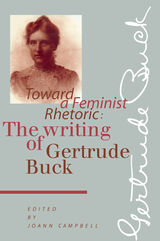
The nature of Gertrude Buck, professor of English at Vassar College from 1897 until her death in 1922, is well-known to anyone interested in the history of composition. Her writing is less well-known, much of it now out of print. JoAnn Campbell gathers together for the first time the major work of this innovative thinker and educator, including her most important articles on rhetorical theory; The Social Criticism of Literature, a forerunner of reader-response literary theory; selections from her textbooks on argumentative and expository writing; poetry; fiction; her play Mother-Love, and unpublished reports and correspondence from the English department at Vassar.
In her introduction, Campbell describes the masculine rhetorical tradition within which Buck wrote and taught. Her theories of language and composition quietly challenged the dominant rhetorics issuing from Harvard and Amherst. An unusually productive scholar, Buck wrote textbooks for her female students that affirmed women’s intellectual abilities and trained them to participate in political debate. In the Vassar English Department she found a community of women among whom she could practice and develop her theories regarding rhetoric, pedagogy, and the role of the individual in society.

Toward a National Power Policy offers a comprehensive analysis of the conflict between Franklin D. Roosevelt's New Deal and the electric utility industry. Philip J. Funigiello outlines the origins and evolution of the privately owned industry, and the growth of an anti-monopoly movement in the 1920s. He details the four major areas of conflict between public and private interests: the Holding Company Act, the Rural Electrification Administration, the Bonneville Power Administration, and power planning for the second World War. Funigiello reveals the complexities of top-level policymaking and the networks of interpersonal relationships that led to both conflict and compromise, and concludes that the failure of the Roosevelt administration to develop a well-defined philosophy prevented the development of a national power policy.

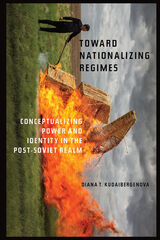
The collapse of the Soviet Union famously opened new venues for the theories of nationalism and the study of processes and actors involved in these new nation-building processes. In this comparative study, Kudaibergenova takes the new states and nations of Eurasia that emerged in 1991, Latvia and Kazakhstan, and seeks to better understand the phenomenon of post-Soviet states tapping into nationalism to build legitimacy. What explains this difference in approaching nation-building after the collapse of the Soviet Union? What can a study of two very different trajectories of development tell us about the nature of power, state and nationalizing regimes of the ‘new’ states of Eurasia? Toward Nationalizing Regimes finds surprising similarities in two such apparently different countries—one “western” and democratic, the other “eastern” and dictatorial.

In 1986, with little warning, the USX Homestead Works closed. Thousands of workers who depended on steel to survive were left without work. A Town Without Steel looks at the people of Homestead as they reinvent their views of household and work and place in this world. The book details the modifications and revisions of domestic strategies in a public crisis. In some ways unique, and in some ways typical of American industrial towns, the plight of Homestead sheds light on social, cultural, and political developments of the late twentieth century.
In this anthropological and photographic account of a town facing the crisis of deindustrialization, A Town Without Steel focuses on families. Reminiscent of Margaret Byington and Lewis Hine’s approach in Homestead, Charlee Brodsky’s photographs document the visual dimension of change in Homestead. The mill that dominated the landscape transformed to a vast, empty lot; a crowded commercial street turns into a ghost town; and an abundance of well-kept homes become an abandoned street of houses for sale. The individual narratives and family snapshots, Modell’s interpretations, and Brodsky’s photographs all evoke the tragedy and the resilience of a town whose primary source of self-identification no longer exists.

Specific topics discussed include medieval beliefs in the pestilent breath of witches, malarial theory in India, domestic and military use of tear gas, Gulf War Syndrome, Los Angeles smog, automotive emissions control, the epidemiological effects of air pollution, transboundary air pollution, ozone depletion, the contributions of contemporary artists to climate awareness, and the toxic history of carbon “die”-oxide. Overall, the essays provide a wide-ranging historical study of interest to students and scholars of many disciplines.
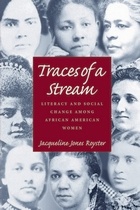
Traces of a Stream offers a unique scholarly perspective that merges interests in rhetorical and literacy studies, United States social and political theory, and African American women writers. Focusing on elite nineteenth-century African American women who formed a new class of women well positioned to use language with consequence, Royster uses interdisciplinary perspectives (literature, history, feminist studies, African American studies, psychology, art, sociology, economics) to present a well-textured rhetorical analysis of the literate practices of these women. With a shift in educational opportunity after the Civil War, African American women gained access to higher education and received formal training in rhetoric and writing. By the end of the nineteenth-century, significant numbers of African American women operated actively in many public arenas.
In her study, Royster acknowledges the persistence of disempowering forces in the lives of African American women and their equal perseverance against these forces. Amid these conditions, Royster views the acquisition of literacy as a dynamic moment for African American women, not only in terms of their use of written language to satisfy their general needs for agency and authority, but also to fulfill socio-political purposes as well.
Traces of a Stream is a showcase for nineteenth-century African American women, and particularly elite women, as a group of writers who are currently underrepresented in rhetorical scholarship. Royster has formulated both an analytical theory and an ideological perspective that are useful in gaining a more generative understanding of literate practices as a whole and the practices of African American women in particular. Royster tells a tale of rhetorical prowess, calling for alternative ways of seeing, reading, and rendering scholarship as she seeks to establish a more suitable place for the contributions and achievements of African American women writers.
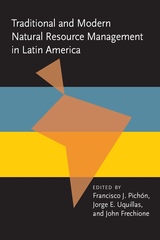
This book identifies a major problem facing developing nations and the countries and sources that fund them: the lack of attention and/or effective strategies available to prevent farmers in underdeveloped and poorly endowed regions from sinking still deeper into poverty while avoiding further degradation of marginal environments. The contributors propose an alliance of scientific knowledge with native skill as the best way to proceed, arguing that folk systems can often provide effective management solutions that are not only locally effective, but which may have the potential for spatial diffusion. While this has been said before, the volume makes one of the best articulated statements of how to implement such an approach.

Recently, there has been a renewed concern with highway safety, reflected in wide media coverage and new laws aimed at reducing highway deaths and injuries. Legge examines three initiatives that have been studied only in isolation: stricter drinking-age laws, mandated use of seat belts, and deterrents to drunk driving. His research covers three large industrial states-New York, California, and Michigan, as well as Great Britain, each of which uses a different mix of these initiatives. Using a combination of theory and research methodology, Legge tests a number of models on how traffic fatalities might be reduced and offers valuable suggestions for policy makers, researchers, and activists.
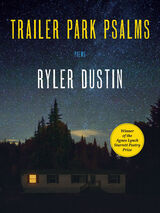
Trailer Park Psalms traces the speaker’s journey beyond his boyhood trailer park, through an American landscape marked by violence—from a gas line explosion in his hometown to his father’s war memories to the scars of colonialism inscribed in place, language, and ecology. Along the way, he searches for sources of awe that might inspire us, even in a compromised world: the everyday miracle of eyesight, the courage of the Voyager spacecrafts, and the “clumsy kindness” of family members trying to mend the damages of the past. In the end, what he finds isn’t faith but the hope that “if there’s a heaven, we will bend / to examine our old selves / and wonder how something so delicate / was ever allowed.”
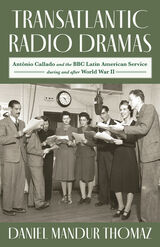
Fills the Gaps of an Important Modernist Brazilian Writer’s Early Career and Illuminates Recurring Themes of His Later Works
The BBC Latin American Service was created in 1938, funded by the British Ministry of Information, to counter fascist propaganda broadcast to Latin America. Now considered one of the major Latin American novelists of the twentieth century, Brazilian writer Antônio Callado (1917–1997) got his start writing radio drama scripts for the BBC LAS during and after World War II. Largely forgotten until Daniel Mandur Thomaz collected them in a 2018 volume published in Brazil, these radio scripts were propaganda in their own right and were part of a concerted effort to win sympathy for Britain and the Allies in Latin America. They reveal how Callado’s experiences during the war influenced his writing and had a critical impact on themes he would revisit consistently throughout his literary career. Transatlantic Radio Dramas analyzes the scripts themselves, but also examines the institutions, material practices, and beliefs that allowed modernist transatlantic networks like the BBC LAS to flourish.
Lynn Emanuel’s sixth collection of poetry is not sequential or straightforward. It has no conventional chronology, no master narrative. Instead, it is a life story, with all the chaos and messiness entailed therein. Transcript of the Disappearance, Exact and Diminishing is a commotion of grief and wit, audacious images, poems, and paragraphs. It explores and centers on the possibilities and limitations of art in the face of disappearances of many kinds, including the disappearance that is most personal—the poet’s own.
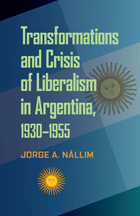
Hipólito Yrigoyen and the deposing of Juan Perón in 1955. While historians have primarily focused on liberalism in economic or political contexts, Nállim instead documents a wide range of locations where liberalism was claimed and ultimately marginalized in the pursuit of individual agendas.
Nállim shows how concepts of liberalism were espoused by various groups who “invented traditions” to legitimatize their methods of political, religious, class, intellectual, or cultural hegemony. In these deeply fractured and corrupt processes, liberalism lost political favor and alienated the public. These events also set the table for Peronism and stifled the future of progressive liberalism in Argentina.
Nállim describes the main political parties of the period and deconstructs their liberal discourses. He also examines major cultural institutions and shows how each attached liberalism to their cause.
Nállim compares and contrasts the events in Argentina to those in other Latin American nations and reveals their links to international developments. While critics have positioned the rhetoric of liberalism during this period as one of decadence or irrelevance, Nállim instead shows it to be a vital and complex factor in the metamorphosis of modern history in Argentina and Latin America as well.
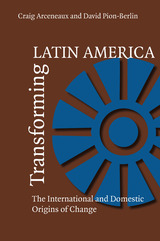
This ambitious book offers a clear and unified framework for understanding political change across Latin America. The impact of U.S. hegemony and the global economic system on the region is widely known, and scholars and advocates alike point to Latin America’s vulnerability in the face of external forces. In spite of such foreign pressure, however, individual countries continue to chart their own courses, displaying considerable variation in political and economic life.
Looking broadly across the Western Hemisphere, with examples from Brazil, the Southern Cone, the Andes, and Central America, Arceneaux and Pion-Berlin identify general rules that explain how international and domestic politics interact in specific contexts. The detailed, accessible case studies cast new light on such central problems as neoliberal economic reform, democratization, human rights, regional security, environmental degradation, drug trafficking, and immigration. And they consider not only what actors, institutions, and ideas matter in particular political contexts, but when, where, and how they matter. By dividing issues into the domains of "high" and "low" politics, and differentiating between short-term problems and more permanent concerns, they create an innovative typology for analyzing a wide variety of political events and trends.
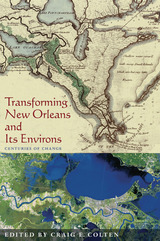
Human settlement of the Lower Mississippi River Valley—especially in New Orleans, the region’s largest metropolis—has produced profound and dramatic environmental change. From prehistoric midden building to late-twentieth century industrial pollution, Transforming New Orleans and Its Environs traces through history the impact of human activity upon the environment of this fascinating and unpredictable region.
In eleven essays, scholars across disciplines––including anthropology, architecture, history, natural history, and geography––chronicle how societies have worked to transform untamed wetlands and volatile floodplains into a present-day sprawling urban center and industrial complex, and how they have responded to the environmental changes brought about by the disruption of the natural setting.
This new text follows the trials of native and colonial settlers as they struggled to shape the environment to fit the needs of urbanization. It demonstrates how the Mississippi River, while providing great avenues for commerce, transportation, and colonization also presented the region’s greatest threat to urban centers, and details how engineers set about taming the mighty river. Also featured is an analysis of the impact of modern New Orleans upon the surrounding rural parishes and the effect urban pollution has had on the city’s water supply and aquatic life.
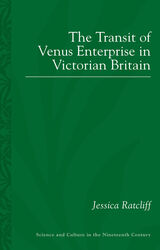
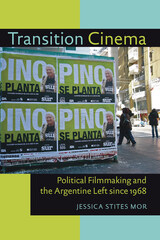
In May of 1976, documentary filmmaker and proclaimed socialist Raymundo Gleyzer mysteriously disappeared in Buenos Aires. Like many political activists, Gleyzer was the target of a brutalizing military junta that had recently assumed power. Amazingly, within a few decades, leftist filmmakers would be celebrated as intellectual vanguards in this same city.
In Transition Cinema, Jessica Stites Mor documents the critical role filmmakers, the film industry, and state regulators played in Argentina’s volatile transition to democracy. She shows how, during different regimes, the state moved to either inhibit or facilitate film production and its content, distribution, and exhibition. She also reveals the strategies the film industry employed to comply with, or circumvent these regulations.
Stites Mor divides the transition period into three distinct generations, each defined by a major political event and the reactions to these events in film. The first generation began with the failed civil uprising in Córdoba in 1969, and ended with the 1976 military takeover. During military rule, repressive censorship spurred underground exhibitions, and allied filmmakers with the Peronist left and radical activists. The second generation arose after the return of civilian rule in 1983. Buenos Aires became the center for state-level cultural programs that included filmmakers in debates over human rights and collective memory campaigns. In 1989, a third generation of filmmaking emerged, with new genres such as cine piquetero (picketer cinema) that portrayed a variety of social movements and brought them into the public eye. By the new millennium, Argentine filmmakers had gained the attention and financial support of international humanitarian and film industry organizations.
In this captivating study, Stites Mor examines how populist movements, political actors, filmmakers, government, and industry institutions all became deeply enmeshed in the project of Argentina’s transition cinema. She demonstrates how film emerged as the chronicler of political struggles in a dialogue with the past, present, and future, whose message transcended both cultural and national borders.
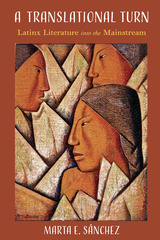
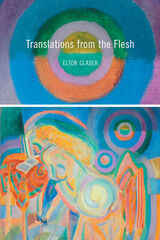
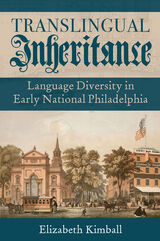
Translingual Inheritance tells a new story of the early days of democracy in the United States, when English had not yet become the only dominant language. Drawing on translingual theory, which exposes how language use contrasts with the political constructions of named languages, Elizabeth Kimball argues that Philadelphians developed complex metalinguistic conceptions of what language is and how it mattered in their relations. In-depth chapters introduce the democratically active communities of Philadelphia between 1750 and 1830 and introduce the three most populous: Germans, Quakers (the Society of Friends), and African Americans. These communities had ways of knowing and using their own languages to create identities and serve the common good outside of English. They used these practices to articulate plans and pedagogies for schools, exercise their faith, and express the promise of the young democracy. Kimball draws on primary sources and archival texts that have been little seen or considered to show how citizens consciously took on the question of language and its place in building their young country and how such practice is at the root of what made democracy possible.
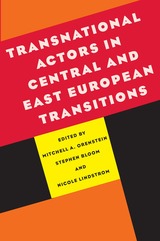
Despite this, the role of transnational actors has been downplayed or dismissed by many theorists. Realists maintain that only powerful states assert major influence, while others argue that transnational actors affect only rhetoric, not policy outcomes. The editors of this volume contend that transnational actors have exerted a powerful influence in postcommunist transitions. They demonstrate that transitions to democracy, capitalism, and nation-statehood, which scholars thought were likely to undermine one another, were facilitated by the integration of Central and East European states into an international system of complex interdependence. Transnational actors turn out to be the “dark matter” that held the various aspects of the transition together.
Transnational actors include international governmental and nongovernmental organizations, corporations, banks, foundations, religious groups, and activist networks, among others. The European Union is the most visible transnational actor in the region, but there are many others, including the OSCE, NATO, Council of Europe, the Catholic Church, and the Soros Foundation.
Transnational Actors in Central and East European Transitions assembles leading scholars to debate the role and impact of transnational actors and presents a promising new research program for the study of this rapidly transforming region.
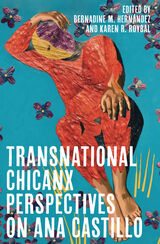
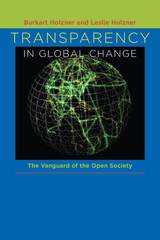
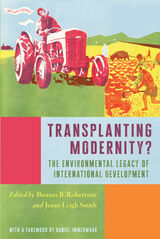
Calls for an Honest Reckoning of the Successes, Failures, and Unanticipated Results of International Developments
In general, “development” denotes movement or growth toward something better in the future. International development—widespread in the decades following World War II—was an effort at purposeful change in landscapes around the world. Contributors to this volume argue that these projects constituted an effort to transplant modernity, such as knowledge or technology, from places seen as more developed to places perceived as un- or underdeveloped. During its heyday, international development included not just dams, roads, health programs, and agricultural projects but also animal husbandry schemes, urban development, and wildlife protection plans. Projects often succeeded or failed because of existing environmental conditions, and in turn, these programs remade—or tried to remake—the land, water, wildlife, and people around them. From American-directed failures in water engineering in Afghanistan to the impact of livestock epidemics on economic growth in East Africa, the chapters in Transplanting Modernity question how science, technology, and faith in Western notions of progress have influenced the pace, scope, and scale of development.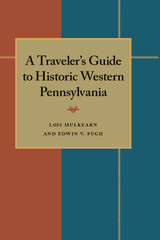
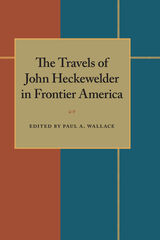
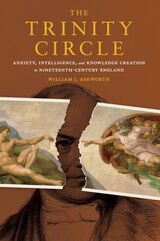
The Trinity Circle explores the creation of knowledge in nineteenth-century England, when any notion of a recognizably modern science was still nearly a century off, religion still infused all ways of elite knowing, and even those who denied its relevance had to work extremely hard to do so. The rise of capitalism during this period—embodied by secular faith, political radicalism, science, commerce, and industry—was, according to Anglican critics, undermining this spiritual world and challenging it with a superficial material one: a human-centric rationalist society hell-bent on measurable betterment via profit, consumption, and a prevalent notion of progress. Here, William J. Ashworth places the politics of science within a far more contested context. By focusing on the Trinity College circle, spearheaded from Cambridge by the polymath William Whewell, he details an ongoing struggle between the Established Church and a quest for change to the prevailing social hierarchy. His study presents a far from unified view of science and religion at a time when new ways of thinking threatened to divide England and even the Trinity College itself.
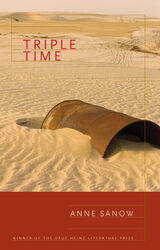
The characters in the linked stories in Triple Time are living an uneasy mesh of two divergent cultures, in a place where tradition and progress are continually in flux. These are tales of confliction-of old and new, rich and poor, sexual repression and personal freedom. We experience a barren yet strangely beautiful landscape jolted by sleek glass apartment towers and opulent fountains. On the fringes of urbanity, Bedouins traverse the desert in search of the next watering hole.
Beneath a surface of cultural upheaval, the stories hold deeper, more personal meanings. They tell of yearnings-for a time lost, for a homeland, for belonging, and for love. Anne Sanow reveals much about the culture, psyche, and essence of life in modern Saudi Arabia, where Saudis struggle to keep their traditions and foreigners muddle through in search of a quick buck or a last chance at making a life for themselves in a world that is quickly running out of hiding places.
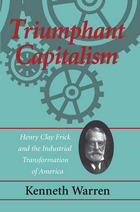
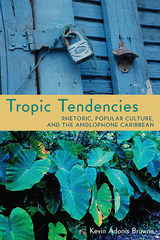
Browne bases his study on the concept of the “Caribbean carnivalesque” as the formative ethos driving cultural and rhetorical production in the region and beyond it. He finds that carnivalesque discourse operates as a “continuum of discursive substantiation” that increases the probability of achieving desired outcomes for both the rhetor and the audience. Browne also views the symbolic and material interplay of the masque and its widespread use to amplify efforts of resistance, assertion, and liberation.
Browne analyzes rhetorical modes and strategies in a variety of forms, including music, dance, folklore, performance, sermons, fiction, poetry, photography, and digital media. He introduces chantwells, calypsonians, old talkers, jamettes, stickfighters, badjohns, and others as exemplary purveyors of Caribbean rhetoric and deconstructs their rhetorical displays. From novels by Earl Lovelace, he also extracts thematic references to kalinda, limbo, and dragon dances that demonstrate the author’s claim of an active vernacular sensibility. He then investigates the re-creation and reinvention of the carnivalesque in cyber culture, demonstrating the ways participants both flaunt and defy normative ideas of “Caribbeanness” in online and macro environments.

Although the pogroms are treated within the context of Russian history, Aronson's analysis has significance for Jewish studies as well. When the Russian government adopted reactionary and repressive policies, Jews began to seek new solutions to the problems that plagued them: massive numbers emigrated to the United States; other turned to revolutionary socialism; still others were attracted to Zionism and supported the creation of the state of Israel.
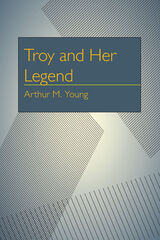
Young provides here a “biography” of the greatest of the classical legends, the story of the fall of Troy. As he states in his book, the greatness of the legend does not depend on its relation to historical reality, but “lies rather in the beauty and variety it has called out of the creative imaginations of artists, from Homer down to modern times, artists who with varied skill and in many forms have expressed their individual genius.” Young's text is beautifully illustrated with examples of art inspired by the legend, from literature, painting, ceramics, tapestry, sculpture, and the opera, with fresh interpretations of their meaning. The legend of Troy has survived more than 3,000 years in the art of many-from Quintus of Smyrna to Tennyson to Christopher Morley, Guérin to Baroccio to Strauss-and archaeological excavations in our own time have only enriched the imaginations of contemporary artists and scholars.
In deepening our knowledge of classic texts and their changing interpretations over time, Young argues, we enhance our understanding both of the classics and of the successive civilizations they have influenced.
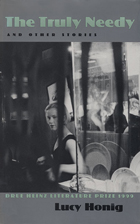
These nine stories are teeming with people on the margins, where destitute New Yorkers and determined immigrants are as much at the mercy of social services, media attention, opportunistic politicians, and "quality-of-life" campaigns as they are prey to grinding poverty, dangerous streets, and their own haunting memories. Delving into Lucy Honig's fiction, one is willingly drawn into an intimacy with these resilient, but flawed characters—among them, a woman who cleans a beauty salon, a high school kid who’s lost a parent, a runaway Cambodian bride, an actress, and a homeless woman. Crossing paths, these difficult characters often misunderstand and sometimes demean each other, yet they also redeem and rescue one other in odd and unexpected ways. In The Truly Needy, Lucy Honig has created a heartbreaking, imaginative world that is the American urban landscape.
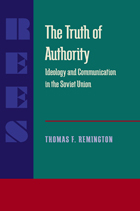
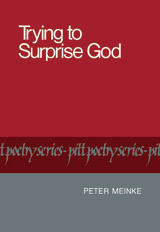
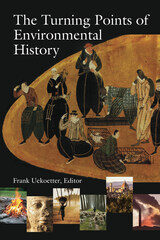
John McNeill introduces the collection with an overarching account of the history of human environmental impact. Other contributors explore the use and abuse of the earth’s land in the development of agriculture, commercial forestry, and in the battle against desertification in arid and semi-arid regions. Cities, which first appeared some 5,500 years ago, have posed their own unique environmental challenges, including dilemmas of solid waste disposal, sewerage, disease, pollution, and sustainable food and water supplies.
The rise of nation-states brought environmental legislation, which often meant “selling off” natural resources through eminent domain. Perhaps the most damaging environmental event in history resulted from a “perfect storm” of effects: cheap fossil fuels (especially petroleum) and the rapid rise of personal incomes during the 1950s brought an exponential increase in energy consumption and unforseen levels of greenhouse gasses to the earth’s atmosphere. By the 1970s, the deterioration of air, land, and water due to industrialization, population growth, and consumerism led to the birth of the environmental and ecological movements.
Overall, the volume points to the ability and responsibility of humans to reverse the course of detrimental trends and to achieve environmental sustainability for existing and future populations.
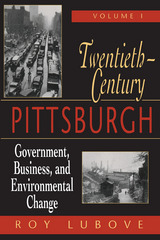
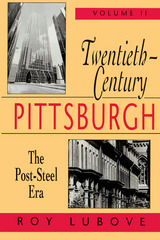
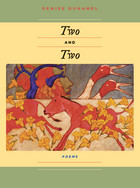
Denise Duhamel's much anticipated new collection begins with a revisionist tale--Noah is married to Joan of Arc--in a poem about America's often flawed sense of history. Throughout Two and Two, doubles abound: Noah's animals; Duhamel's parents as Jack and Jill in a near-fatal accident; an incestuous double sestina; a male/female pantoum; a dream and its interpretation; and translations of advertisements from English to Spanish. In two Möbius strip poems (shaped like the Twin Towers), Duhamel invites her readers to get out their scissors and tape and transform her poems into 3-D objects.
At the book's center is "Love Which Took Its Symmetry for Granted," a gathering of journal entries, personal e-mails, and news reports into a collage of witness about September 11. A section of "Mille et un sentiments," modeled on the lists of Hervé Le Tellier, Georges Perec, and George Brainard, breaks down emotions to their most basic levels, their 1,001 tiny recognitions. The book ends with "Carbó Frescos," written in the form of an art guidebook from the 24th century.
Innovative and unpretentious, Duhamel uses twice the language usually available for poetry. She culls from the literary and nonliterary, from the Bible and product warning labels, from Woody Allen films and Hong Kong action movies--to say difficult things with astonishing accuracy. Two and Two is second to none.
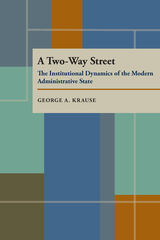
One of the central questions of political science has been whether politicians control the bureaucracy, or whether the bureaucracy possesses independent authority from democratic institutions of government. Relying on advanced statistical techniques and case studies, George Krause argues instead for a dynamic system of influence—one allowing for two-way interaction among the president, congress, and bureaucratic agencies. Krause argues that politicians and those responsible for implementing policy respond not only to each other, but also to events and conditions within each government institution as well as to the larger policy environment. His analysis and conclusions will challenge conventional theoretical and empirical wisdom in the field of administrative politics and public bureaucracy.
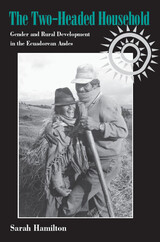
The Two-Headed Household is an ethnographic account of gender relations and intrahousehold decisionmaking as well as a policy-oriented study of gender and development in the indigenous Andean community of Chanchalo, Ecuador. Hamilton’s main argument is that the households in these farming communities are “two-headed.” Men and women participate equally in agricultural production and management, in household decisionmaking, and share in the reproductive tasks of child care, food preparation, and other chores.
Based on qualitative fieldwork and regional household survey data, this book investigates the effect on women's lives of gender bias in agricultural development programs and labor and commodities markets. Despite household economic reliance on these programs and markets, there is extraordinary evidence of social and economic gender equality. Traditional Andean kinship structures enable women and men to enter marriage as materially equal partners.
As seen in case studies of five women and their families, the author continually encounters joint decisionmaking and shared household and agricultural responsibilities. In fact, it often seems that women have the final say in many decisions. There is the belief that a dynamic balance of power between male and female heads provides an impetus toward mutually desired economic and social goals. Despite the strong influence of the patriarchal power of the hacienda system, Andean gender ideology accords women and men equal measures of physical, mental, and emotional fortitude. The belief that maintaining traditional forms of economic collaboration helped them survive on the hacienda was reinforced under the economic and political domination of the patriarchal systems of the landed elite, church, and state.
Today, these people are proud of their strong women, strong families, and community solidarity which they believe distinguishes them from Ecuadorean and American societies. Hamilton suggests that women in developing countries should not be viewed as simply, or even inevitably, victims of gender-biased structural or cultural institutions. They may resist male bias, perhaps even with the support of local-level institutions. The Two-Headed Household demonstrates that analysis of gender relations should focus on forms of cooperation among women and men, as well as on forms of conflict, and will be of interest to scholars and students in anthropology, gender and development, and Latin American Studies.
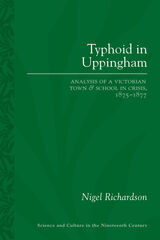
Richardson examines the conduct of those involved in town and school, the economic dependence of the former on the latter, and the opposition to higher rates to pay for sanitary improvement by a local ratepayer "shopocracy." He compares the sanitary state of the community with others nearby, and Uppingham School with comparable schools of that era. Improvement was often determined by business considerations rather than medical judgments, and local personalities and events frequently drove national policy in practice. This study illuminates wider themes in Victorian public medicine, including the difficulty of diagnosing typhoid before breakthroughs in bacteriological research, the problems local officialdom faced in implementing reform, and the length of time it took London ideas and practice to filter into rural areas.
READERS
Browse our collection.
PUBLISHERS
See BiblioVault's publisher services.
STUDENT SERVICES
Files for college accessibility offices.
UChicago Accessibility Resources
home | accessibility | search | about | contact us
BiblioVault ® 2001 - 2024
The University of Chicago Press









